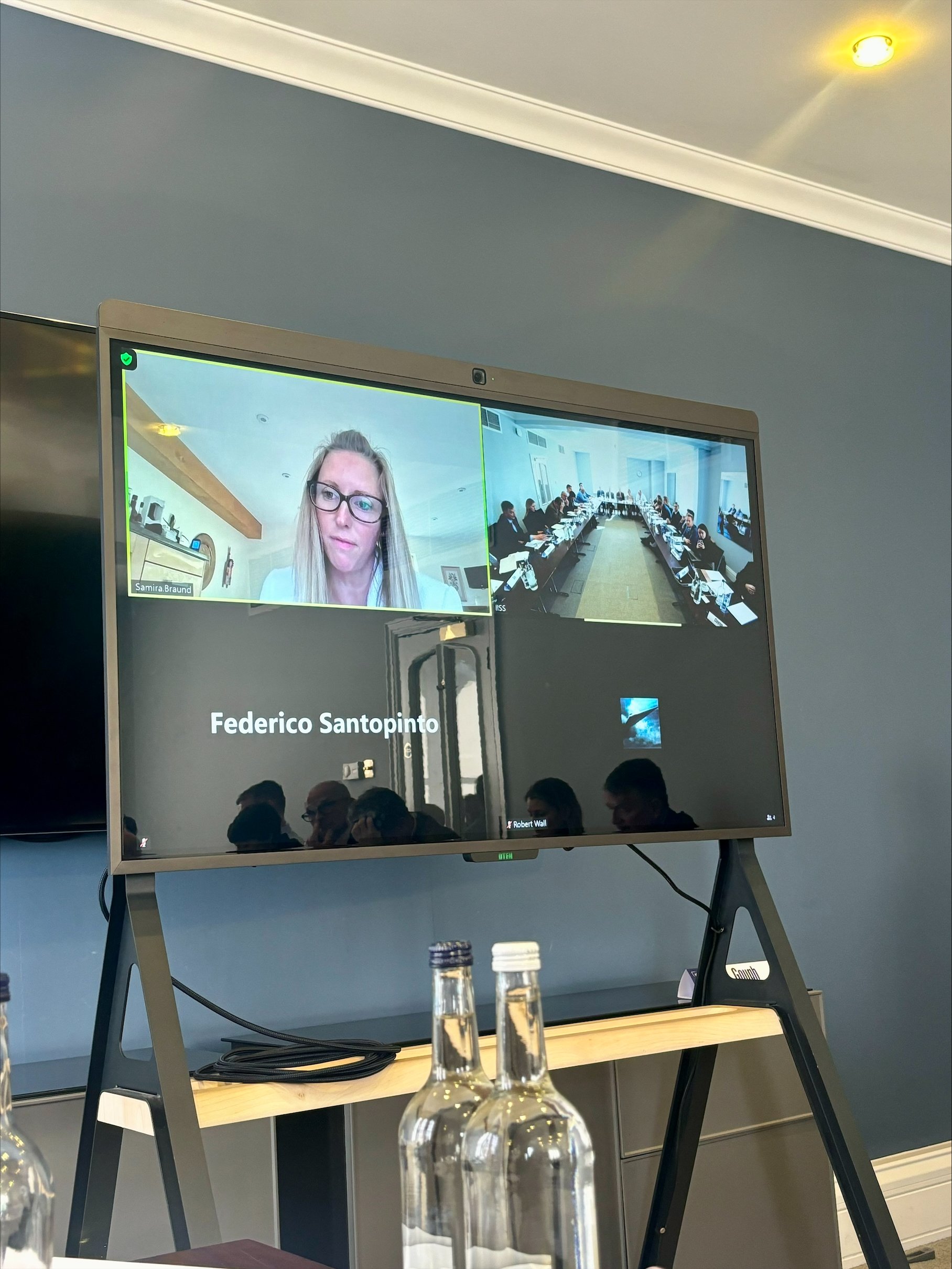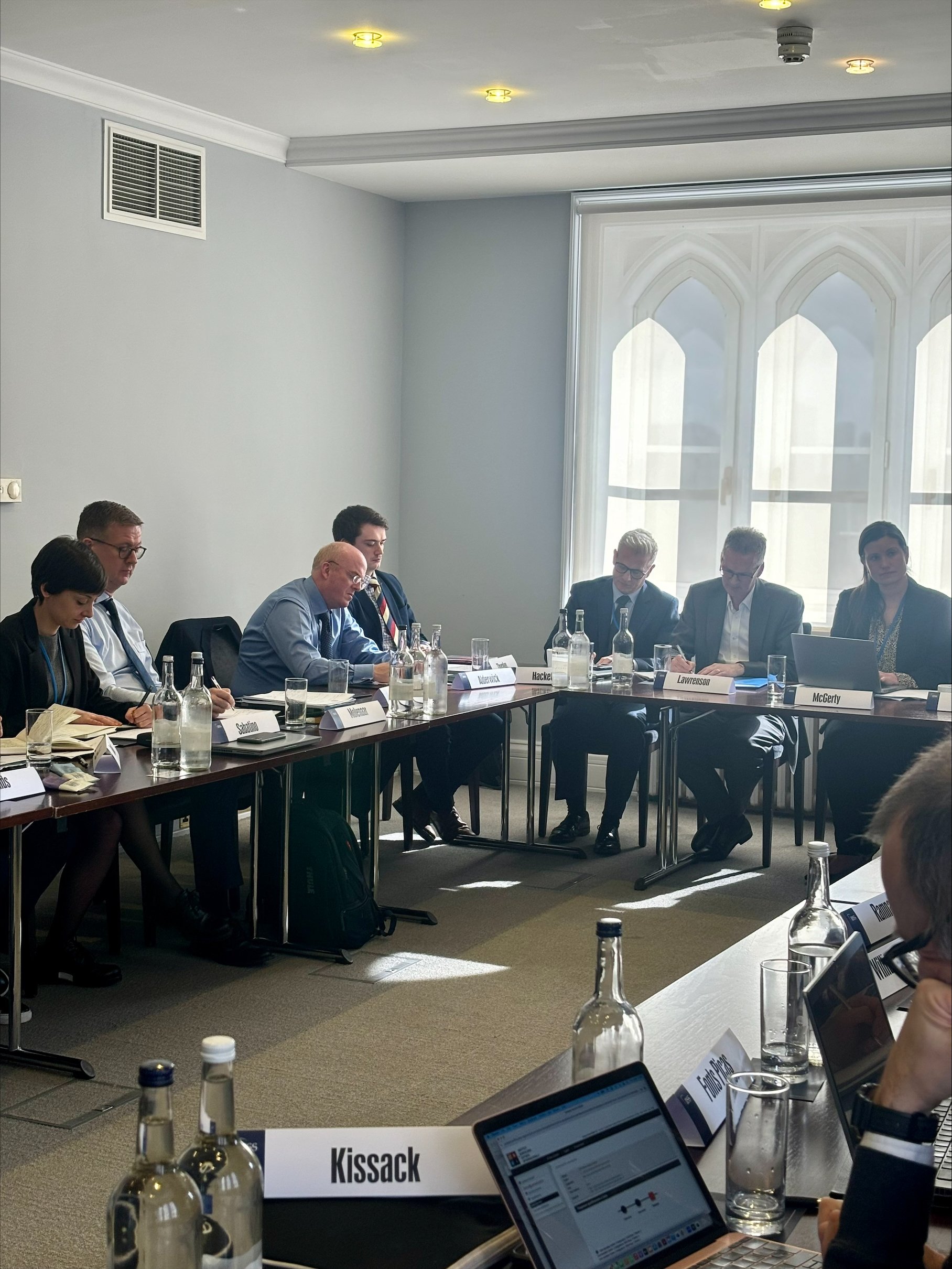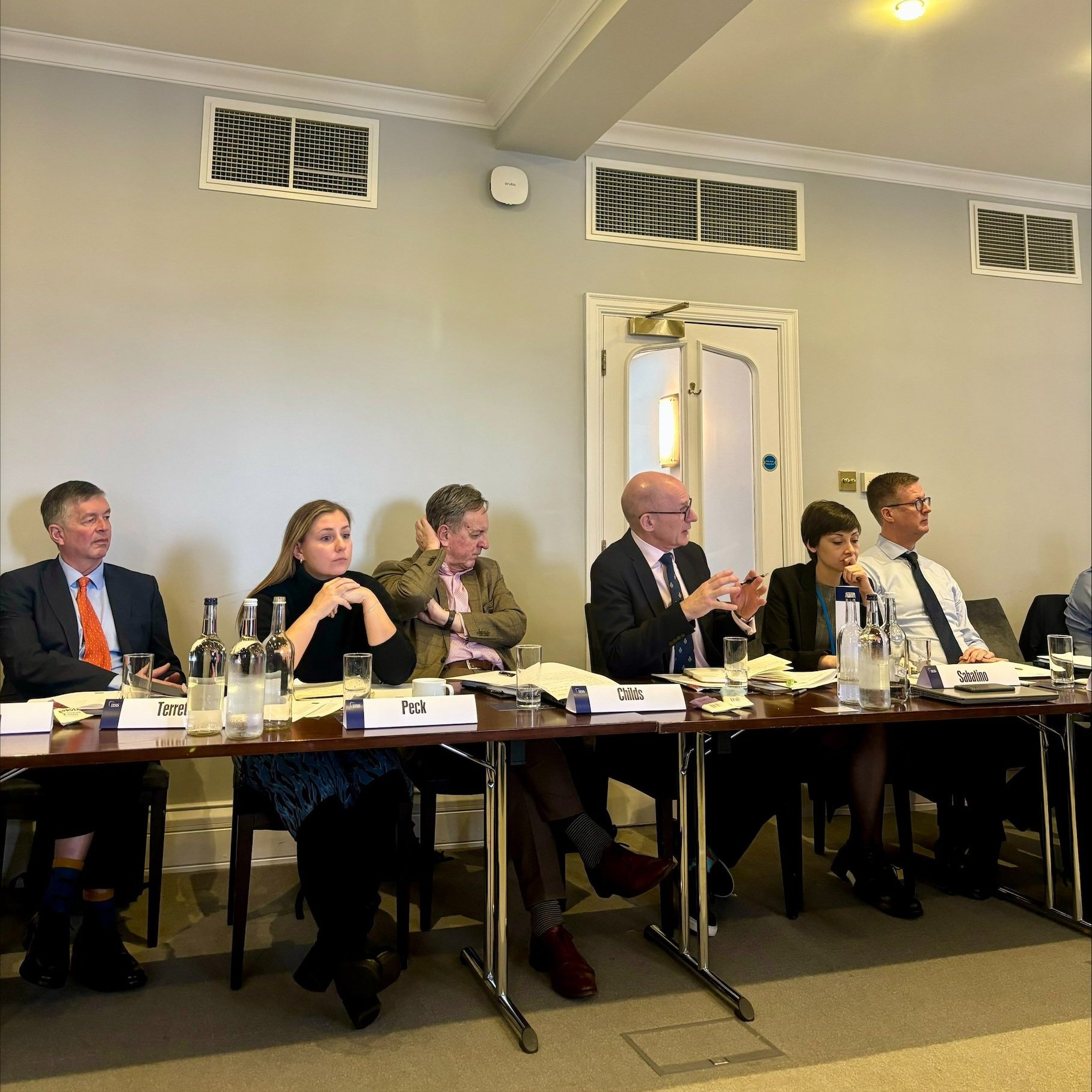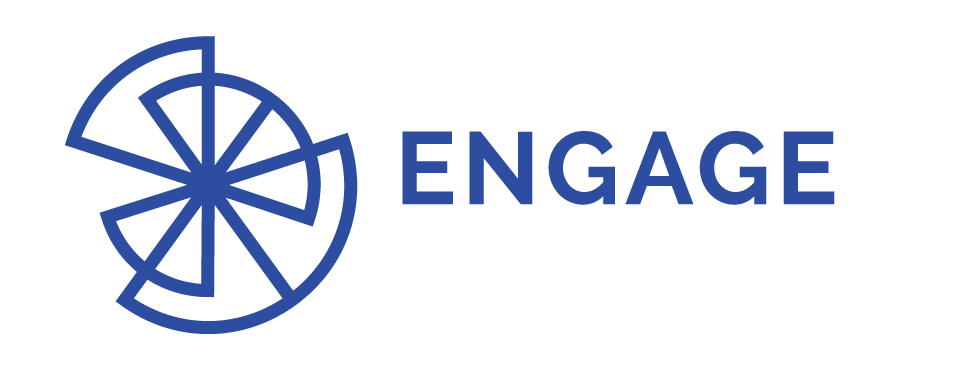Third countries’ participation in joint defence procurement
London, United Kingdom
Tuesday, March 5, 2024
The London Stakeholder Workshop on EU defence industry and the challenge of integration with non-EU partners took place on March 5, 2024. The meeting, organised by the International Institute for Strategic Studies (IISS), brought together a select group of policymakers, officials and experts, including representatives of the European Commission, the UK Ministry of Defence and the UK Foreign Office. The workshop revolved around two panel discussions which focused on how to achieve cooperation between the UK and the EU on defence capability development.
The first panel, “UK-EU defence capability cooperation between structural issues and lessons learned” was chaired by Tim Lawrenson, Associate Fellow for Defence and Military Analysis at the IISS and included insights by Anrout Molenaar, Policy Analyst at the European Commission, as well as analysis by Peter Round, Consulting Senior Fellow at the IISS and former European Defence Agency Capability Director and Ester Sabatino, ENGAGE researcher at the IISS. The aim was to identify obstacles for further cooperation on capability development with non-EU partners as well as reflecting on the cost of opportunity in which partners incur when failing to collaborate.
The second panel, “Inclusion of third countries in EU capability development projects – the UK point of view” focused on the extent to which the evolving defence policy agenda of the EU allows for cooperation with non-EU countries, particularly the UK. Panel participants included Isabella Antinozzi, Research Analyst on Defence, Industry and Society at the Royal United Services Institute (RUSI), Julie Marionneau, Head of International Relations at the ADS Group and Ben Moores, Policy Adviser to the UK Secretary of State for Defence. The panel was chaired by Fenella McGerty, Senior Fellow for Defence Economics at the IISS.
Different options for the UK to take a more active role in EU joint defence programmes were discussed, ranging from a potential administrative agreement with the European Defence Agency to establishing ad-hoc cooperation mechanisms. Participants also acknowledged challenges that should guide upcoming defence industrial policy, such as the need to shift from emergency response to defence readiness, the requirement to have shorter and safer supply chains and the increasingly active role that the European Commission is taking on defence policy in the EU.





